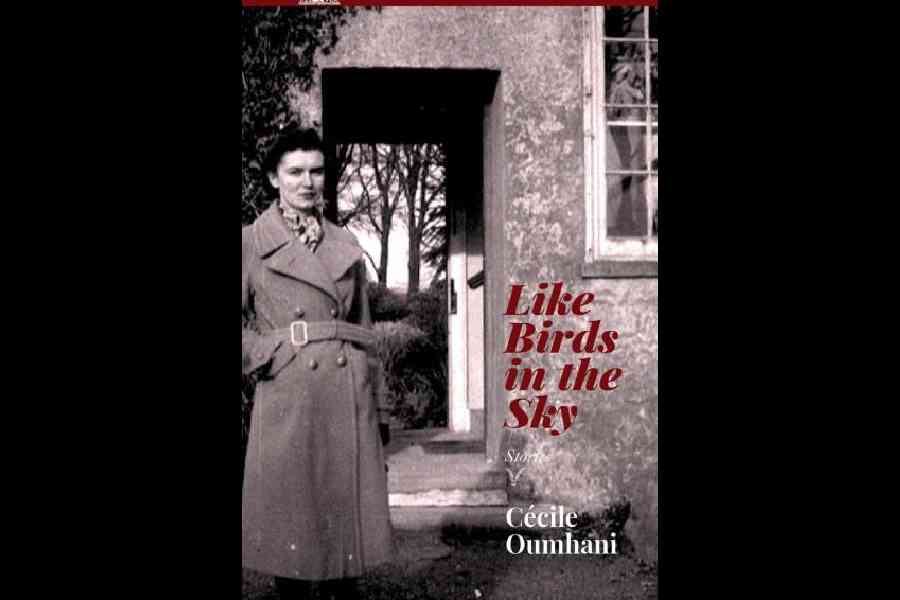The first time I heard the poetic charm of Cecile Oumhani flowing through the digital feed was during the Covid years, when many of us found ingenious ways of reaching out to writers and artists across puddles and ponds. On a balmy night as Cecile joined Basant Rungta’s serious poetry adda Srijan, by hybrid mode, to speak about the great Russian poet Anna Akhmatova, Cecile’s voice was magical. I recall the transformative lines she recited which still push their way through like a sledgehammer at times when I see the brutality that punctuates world news today.
“Everything readies for death / Everything in Life is Sorrow / And most lasting is the regal Word.”
Oumhani’s newest book, Like Birds in the Sky, a collection of cleverly constructed short stories, has an ethereal quality. The anthology has the allure of a lapidarist’s best piece of jewellery — intricately designed, meticulously crafted — that captivates the reader with a burst of joy. The clutch of nine short stories — The Summer We Went to Canada, Survivors, Don’t Forget to Get Some Flowers, Questions Left Unanswered, Bagh, Lost and Found, A Corner of One’s Own, Changing Times, and Like a Bird Flying in the Sky are dedicated to Cecile’s mother, Madeleine, who is the moving spirit in the collection.
As a child, Madeleine was extremely sensitive to war, separation and the fissures and fragmentation that came with two World Wars and a barrage of conflicts between communities in Europe. Her daughter, Cecile, takes on this mantle of sensitiveness to conflict and war. Many of the images that stay with the reader are the horror-stricken eyes of human beings who have been through slaughter.
The constant attempt of the adventurous writer to play fast and loose with memory is a strategy that might remind us of a cinematic style where an object of memory like the Indian carpet Cecile sits on in her grandparents’ garden in rural France as an infant, years later becomes her magic carpet to ride off on the wings of imagination. Memory is at once a great engine for tripping on nostalgia, and also a means to negotiate the indeterminate relationship between the past and the present.
Oumhani is a master of constantly creating a web and her simple statements, though lucid, signpost a formidable mind. She connects the carpet of her infancy to the safe landing of this book in the hands of a publisher in India.
As she teasingly says: “Nor did I know that a book with pieces related to them would ever be published in India, bringing me deep joy. Human lives are like a fabric woven of traces and shadows whose presence we are often unaware of. The written word is one way of reclaiming them.”
She has a light touch of a consummate artist who conjures a dreamlike space where the reader is gently ushered in, and occasionally that dreamscape is fissured with reality like a hyena gnawing at the heels. She grew up on Indian curries since her mother was born in Guntur and she has a passion for Satyajit Ray’s films. She loves Rabindranath Tagore and has a strong leaning towards traditional Indian art and the art of rangoli. It is easy to see that she has developed a global soul and her understanding of the human condition gives her a certain universality.
Cecile’s stories speak of the desperation and despondency that war brings, but her remarkable ability to find hope and a strange force of calmness makes her a formidable force in world literature. She has developed a literary persona that celebrates the divine feminine in the profane reality of the daily grind. With a trend of Manish Gaekwad with his biography of his mother in The Last Courtesan of Calcutta, Radhika Oberoi with her innovative celebratory novel Of Mothers and Other Perishables, and Saikat Majumdar’s thought-provoking novel The Firebird, Cecile is on a trailblazer’s track to enrich the burgeoning new department on stories about mothers.











